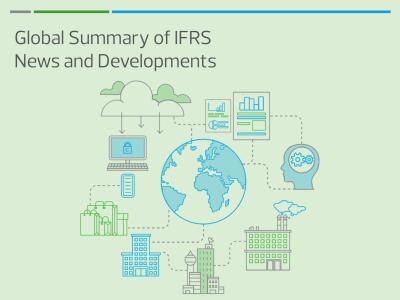When a company decides to sell an asset or halt a part of its business, this decision impacts future cash flows, profitability, and overall financial situations. It is crucial for the users of financial statements to be informed of these events. That's why the International Financial Reporting Standard, IFRS 5: Non-Current Assets Held for Sale and Discontinued Operations, was created. This standard separates results from continued operations and ongoing activities to ensure transparency.
IFRS 5 became effective on January 1 2005, and has two main areas of focus:
- It specifies the accounting treatment for assets (or disposal groups) held for sale, and
- It sets the presentation and disclosure requirements for discontinued operations.
The first specifies the accounting treatment for assets (or disposal groups) held for sale, and the second sets the presentation and disclosure requirements for discontinued operations. To classify an asset as held for sale, it must be anticipated that most of its carrying amount will be recovered through future cash flows from its sale, rather than future cash flows from use. IFRS 5 does not apply to non-current assets that will be abandoned, as their carrying amount will be regained through future use.
Classification:
To classify a non-current asset as "held for sale," most of the asset's carrying amount should be recoverable from future cash flows generated by the sale, rather than from its use. However, IFRS 5 won't be applicable to an asset that is expected to be abandoned, as the carrying amount of an abandoned asset will be recovered through its future use.
In order for an asset to be classified as "held for sale," the asset or disposal group should be immediately available for sale in its current condition, and the sale should be highly probable. IFRS 5 lays out certain criteria that must be met to classify a sale as highly probable:
- The management must have a commitment to sell the asset
- The asset must be actively marketed for sale at a reasonable price
- An active program to find a buyer must be initiated
- The sale must be completed within one year of the classification date
- There should be no significant changes to the plan that might impact the sale
Measurement:
In order to properly classify an asset as held for sale, it must be measured according to the relevant IFRS. Once the classification has been made, the asset should be measured at the lower of its carrying amount or fair value less costs to sell. There are some exceptions to this rule, such as:
- Deferred tax assets (IAS 12 Deferred Tax)
- Assets arising from employee benefits (IAS 19 Employee Benefits)
- Financial assets within the scope of IFRS 9 Financial Instruments
- Non-current assets that are accounted for under the fair value model in IAS 40 Investment Property
- Non-current assets that are measured at fair value less costs to sell in accordance with IAS 41 Agriculture
- Contractual rights under insurance contracts as defined in IFRS 4 Insurance Contracts.
These assets must still be measured under their original accounting policy if they are classified as held for sale. It's important to note that although the accounting treatment of these assets does not change, they must be presented separately from other assets and require additional disclosure.
Discontinued operations
If an entity has disposed of, or plans to dispose of, a component that represents a separate major line of business or geographical area of operations, or has acquired a subsidiary solely for resale, it is considered a discontinued operation according to IFRS 5. These discontinued operations should be presented separately in the financial statements in order to keep readers informed of both the discontinued operations and the ones that the entity will continue with to generate future profits and cash flows.
- The presentation of discontinued operations in the statement of profit and loss and other comprehensive income should include a single amount that comprises of:
- The post-tax profit or loss of the discontinued operation
- The post-tax gain or loss recognised on the measurement to fair value less costs to sell
- The post-tax gain or loss recognised on the disposal of assets or the disposal group making up the discontinued operation
The analysis of this amount can be included in the notes or on the face of the statement of profit and loss and other comprehensive income.
- The statement of cash flows should include the net cash flow that relates to the operating, investing and financing activities of the discontinued operation.
Additionally, in the statement of financial position, non-current assets that are part of a disposal group must be separated from other assets, and the same applies for liabilities that are part of a disposal group classified as held for sale. By following these guidelines, readers of the financial statements can more easily understand the financial impact of the discontinued operations on the entity's cash flow and overall financial position.
In conclusion, IFRS 5: Non-Current Assets Held for Sale and Discontinued Operations provides guidance on the accounting treatment, presentation, and disclosure of non-current assets held for sale and discontinued operations. The standard sets out criteria for an asset to be classified as held for sale and provides for the measurement of such assets. Additionally, the standard requires discontinued operations to be presented separately in the financial statements to inform the users of the financial statements about those operations the entity has discontinued and those operations the entity is continuing with in order to generate future profits and cash flows. Overall, IFRS 5 aims to provide transparency and useful information to the users of financial statements regarding an entity's decision to sell an asset or to discontinue some part of its business.
Michael Steenkamp
Director: Audit, Johannesburg
Visit our IFRS News section for further insights into International Financial Reporting Standards





